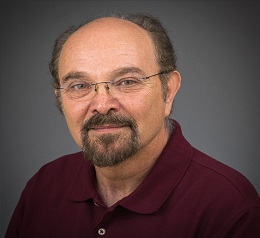Scholars Scholars World Congress on
Material Science and Engineering
THEME: "Advances in Material Science and Engineering"
 23-24 May 2022
23-24 May 2022  ONLINE & VIRTUAL
ONLINE & VIRTUAL THEME: "Advances in Material Science and Engineering"
 23-24 May 2022
23-24 May 2022  ONLINE & VIRTUAL
ONLINE & VIRTUAL 
North Carolina State University, USA
Title: The Use of Cellulose Nanocrystals as Scaffolds for Nanodevices, Photoreversible and Antimicrobial Self Assemblies; Supramolecular Chemistry Using Nature’s Most Abundant Template
Dimitris S. Argyropoulos is a Professor Emeritus at North Carolina State University and a Finland Distinguished Professor of Chemistry. The work of his group focuses on the organic chemistry of wood components and the development of new chemistry for transforming the carbon present in our trees toward producing valuable chemicals, materials and energy.
Dr. Argyropoulos received his Ph.D. in Organic Chemistry from McGill University in Montreal, Canada where he also served as a PAPRICAN professor with the Chemistry department. His teaching is primarily related to wood chemistry, biomaterial characterization, carbohydrate, lignin and polymer chemistry. Dr. Argyropoulos is a Fellow of the International Academy of Wood Science and a Fellow of the Canadian Institute of Chemistry. In addition to being a member to a number of professional societies (ACS, TAPPI, PAPTAC), Dr. Argyropoulos serves the editorial boards of five scientific journals as well the board of the International Lignin Institute and a number of International Scientific committees. He has also served as the Division Chair, and Secretary of the Cellulose and Renewable Materials of the American Chemical Society.
Recent research in his group emerges from a significant finding that wood can be dissolved in Ionic Liquids, allowing for the creation of a variety of novel processing platforms for producing new materials, chemicals and energy. In addition, his group develops new methods based on organic chemistry, NMR spectroscopy and catalysis to modulate, direct and understand the transformations of wood biopolymers during industrial transformations such pulping, bleaching and bio-processing.
Over a number of years work in our laboratory has been exploring the use of cellulose nanocrystals (CNC) as scaffolds for the creation of novel nanomaterials with unique and stimuli responsive characteristics. The forces responsible for the spatial organization within cellulose, coupled with traditional chemistry are aimed at creating structures via molecular self assembly; These concepts have been the inspiration for our supramolecular research.
In this lecture we will report on our systematic efforts aimed at functionalizing CNCs by using both grafting from and grafting onto approaches. The selective creation and activation of a nano-pattern on CNC will be described and the chemical methods used to create the foundation for novel CNC based materials (including self-assembled Cellulose NanoPlatelet Gels), photo reversible light induced and novel antimicrobial assemblies will be described.